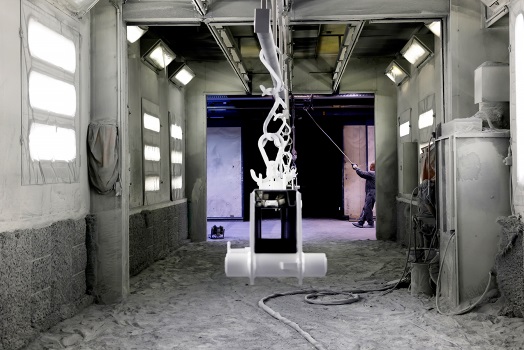Russia´s attack on Ukraine rises risk for Finnish tech sector
Published : 04 May 2022, 20:44
Updated : 04 May 2022, 23:52
Russia’s war of aggression in Ukraine has significantly weakened the situation and outlook of technology companies, but growth should nevertheless continue in 2022, according to a survey conducted by the Technology Industries of Finland.
A significant number of companies reported on shrinking turnovers, weaker profitability, postponement of investments – and even lay-offs, said a press release on Wednesday, quoting the survey.
A total, 580 technology industry company CEOs responded to the survey on the impact of the war on the operation of export companies.
The war has dramatically increased both uncertainty and business risks. As many as 85 per cent of companies in the manufacturing sector reported a further weakening in the availability of materials and raw materials since the war started.
An almost equal number expects to see the situation deteriorate further in the coming months. Various production disruptions are likely as the year progresses.
The sharp increase in costs is affecting the profitability of companies. As many as 53 per cent of companies expect to see their profitability weaken year-on-year.
Many companies have also been forced to reconsider their investments. Twenty per cent of the respondents had put their investment plans on hold while another 5 per cent had cancelled investments.
Twenty-three per cent of respondents expect to see a drop in their production volumes. Personnel will also be affected. Seventeen per cent of respondents reported that they will have to lay off or reduce their personnel due to direct or indirect effects of the war.
On the other hand, it is reassuring to see that the tender request survey indicates that demand remained at a relatively good level in April.
“Differences between individual companies are huge at the moment. Some are seeing excellent results, while others are struggling to be profitable. Overall economic uncertainty is at a very high level, but fortunately the worst-case scenarios have not yet materialised,” said Petteri Rautaporras, Director, Chief Economist at Technology Industries of Finland.
Jaakko Hirvola, the CEO of Technology Industries of Finland, emphasised that we must do what we can in the midst of all this uncertainty. The NATO decision, for example, can curb country risk, which companies are increasingly concerned about.
“We welcome the budget session decision on speeding up the investment licencing process, and it is important to implement the decision quickly and at all sectors. We simply cannot afford to keep billion-euro investment projects on hold for years because of the slow processing of licences. The war and its impacts have made the investment environment even more challenging, so it is vital to make sure that planned investments are carried out,” Hirvola pointrd out.
According to Hirvola, the Government should also place more emphasis on export financing to help companies quickly identify new markets to replace Russian trade.
“The discussion on the difficulty of obtaining funding for small export projects has been ongoing for years. Finnish companies are in a weaker position than their foreign competitors who benefit from direct funding from their respective export credit agencies. This is a problem for SMEs in particular, but also for any larger companies looking for less than EUR 20 million in funding. It is now finally the time to give Finnvera the necessary powers,” Hirvola added.
The availability of steel is a serious problem for many technology industry companies, and quick action is required also at the EU level.
“It is necessary to abolish steel tariffs for certain grades where shortages threaten to paralyze the operations of companies. Steel shortage affects companies in Finland and all of Europe,” said Director Matti Mannonen.
He would also like to see more clarity on the sanctions against Russia.
“Technology industry companies are committed to the sanctions against Russia. However, ensuring full compliance is not easy, and many companies are afraid of making unintentional mistakes and facing sanctions themselves. More resources are needed for authorities to provide guidance and counselling services to get through the jungle of details with no errors,” Mannonen said.


